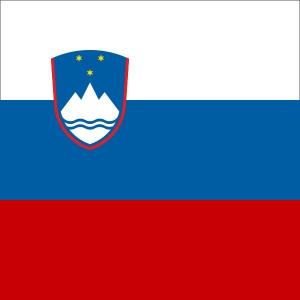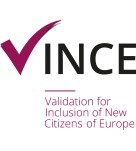
In Slovenia there is no single overarching legal framework for validation of prior learning. While on the level of vocational education the system of professional qualifications provides a tool for validation of prior learning and parts of qualifications as well as full qualifications can be obtained through validation of non-formal and informal learning, validation on the HE level is completely decentralised. The legal framework for validation of prior learning in HE is currently provided by the Act on Higher Education (2012), which recognises the right of students to validation of prior learning, and every HE institution is now required to provide validation of non-formal and informal learning. However, the definition of the procedures and standards for validation are left to HE institutions themselves.
In 2015 the Act on National Qualifications Framework was adopted, which will provide a basis for creation of a national system for validation of prior learning, encompassing all levels of education.
VPL in Higher Education
Validation of prior learning in HE is completely decentralised, the definition of procedures and standards for validation is left to the HE institutions themselves and can differ significantly between different institutions. Although introduction of a single national validation framework encompassing all levels of education is planned on the basis of the Slovenian Qualifications Framework (SQF), HE institutions will at first retain their autonomy.
Possibilities for validation of prior learning for the purpose or enrolment or re-enrolment in study programmes are common at the level of HE, as VPL is stipulated by the Act on Higher Education, however, not much has been done to raise awareness about these opportunities. In HE single courses, parts of courses and modules (ECTS points) can be obtained through validation, degrees, however, can only be obtained through enrolment and completing at least a part of a study programme at a HE institution.
Validation against learning outcomes is not very common in Slovenia and few HE institutions have yet implemented learning outcomes in their study programmes.
Validation in the Labour Market
The National Employment Service has been active in promoting VPL through organising events and job consultation activities, however, these activities have been mostly aimed at at-risk groups, such as long-term unemployed and people with low education and have had a lesser effect on HE. Also, VPL is much more present in the vocational sector, because the NVQ (national vocational qualifications) provide a legal framework for valuation of non-formal and informal learning and issuing of qualifications. Nevertheless, awareness of importance of non-formal and informal learning has risen among employers concerning all levels of education and they have become more open to taking into account prior learning and experience of candidates rather than just formal education. However, formal validation of prior learning in the labour market is still very rare.
Validation in the Third Sector
Volunteering has become more valued among employers in the last years, however the valuation of volunteering as work experience is still individually assessed by each employer or company. Validation of volunteering towards qualifications is even less common.
Funding of VPL
Policy making and implementation of validation system at national level are funded by the government. Institutions responsible for validation are public and their core function is publicly funded.
The costs of individual VPL processes, at HE education as well as other levels, are covered by applicants through a fee that covers the cost of work undertaken by the committee or validator. If the validation process is a part of an enrolment procedure, the costs of validation are often included in the tuition fee. In relation to at risk groups, the Employment Service of Slovenia has a budget for additional support.
Recognition of foreign formal education for the purpose of further education at educational institutions is free of charge.
References (All accessed on 19th of June 2017)
- 2016 update to the European Inventory on Validation of Non-formal and Informal Learning, Country Report Slovenia
- Act on Higher Education (2012)
- Act on the National Qualification Framework (2015)
- Slovenian Qualification Framework
- European inventory on validation of non-formal and informal learning – Slovenia – 2016
More Information
- Documents about validation in Slovenia in the VINCE library
- Country Report Slovenia: 2016 update to the European inventory on validation of non-formal and informal learning. https://cumulus.cedefop.europa.eu/files/vetelib/2016/2016_validate_SI.pdf

